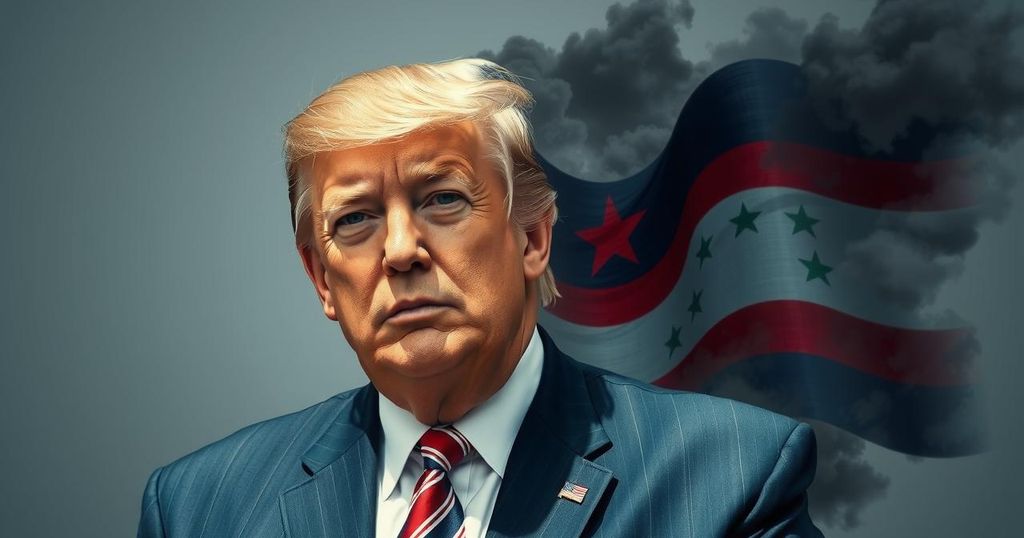President-elect Donald J. Trump is preparing to manage the escalating crisis in Syria amid a civil war that has lasted since 2011. His proposed non-interventionist approach, reflective of his past criticisms of U.S. military involvement in the Middle East, remains uncertain due to internal and external influences. Key appointments and ongoing developments will shape U.S. policy in the region moving forward.
President-elect Donald J. Trump is poised to assume responsibility for the escalating crisis in Syria, which has been dominated by civil war since 2011. His potential methodology for addressing the complexities of Syrian governance, particularly in relation to groups with ties to terrorism, remains ambiguous. Observers anticipate that varying opinions from advisors and global leaders will influence his decisions moving forward.
Mr. Trump has articulated a clear preference for a non-interventionist stance, frequently expressing his views on social media regarding the Syrian conflict. He has characterized Syria as a “land of sand and death” and has criticized past U.S. military interventions in Middle Eastern locales, deeming them as part of America’s so-called “endless wars.” Just recently, Trump asserted: “This is not our fight. Let it play out. Do not get involved.”
The sentiment reflected in Trump’s opinions finds resonance with Vice President-elect JD Vance, who has also criticized U.S. foreign policy’s tendency to overreach. Additionally, Trump’s intention to nominate Tulsi Gabbard, a former Congresswoman known for her opposition to U.S. involvement in Syria, signals a potential alignment in foreign policy philosophy among his incoming administration.
Conversely, Trump’s stark dismissal of engagement in Syria raises concerns about U.S. responsibilities in aiding allies and mitigating the humanitarian crisis in the region. As the situation evolves, the implications of his policy decisions will be monitored closely, considering the dire consequences that could ensue from a lack of American involvement in a complex conflict that continues to threaten regional stability and international security.
The ongoing conflict in Syria began in 2011 as a result of widespread protests against President Bashar al-Assad’s government, eventually escalating into a multifaceted civil war. The fight involves numerous factions, including groups with links to terrorism, and has resulted in devastating humanitarian conditions. As the new administration prepares to take office, the future of Syria and the U.S. role therein remains uncertain, shaped by previous American interventions in the region which are met with skepticism by the president-elect.
In conclusion, President-elect Donald J. Trump’s approach to Syria is anticipated to reflect a non-interventionist policy, emphasizing a cautious stance towards the complex and volatile situation in the country. His intention to forgo military involvement and his disdain for previous interventions suggest a significant shift in U.S. foreign policy, which could have far-reaching implications for regional dynamics and global security. The effectiveness and consequences of such a strategy will warrant close observation as the new administration navigates these challenges.
Original Source: www.nytimes.com







